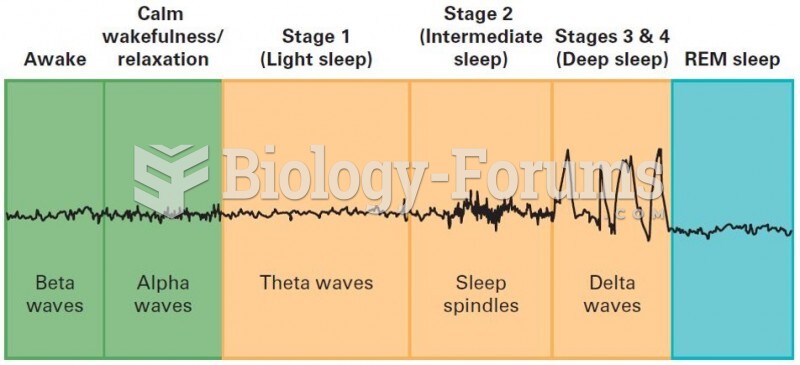Answer to Question 1
Correct Answer: 1,2,3
Rationale 1: Rebound insomnia can occur when sedatives are abruptly withdrawn after being used long term for sleep. One symptom of rebound insomnia is sleeplessness.
Rationale 2: Rebound insomnia can occur when sedatives are abruptly withdrawn after being used long term for sleep. One symptom of rebound insomnia is anxiety.
Rationale 3: Rebound insomnia can occur when sedatives are abruptly withdrawn after being used long term for sleep. One symptom of rebound insomnia is daytime drowsiness.
Rationale 4: Dizziness is not a symptom of rebound insomnia.
Rationale 5: Blurred vision is not a symptom of rebound insomnia.
Global Rationale: Rebound insomnia can occur when sedatives are abruptly withdrawn after being used long term for sleep. Symptoms of rebound insomnia include sleeplessness, anxiety, and daytime drowsiness. Dizziness and blurred vision are not symptoms of rebound insomnia.
Answer to Question 2
Correct Answer: 1,2,5
Rationale 1: There is a pathophysiological link between sleep and anxiety.
Rationale 2: Insomnia therapy is more than just a nighttime problem. Anxiety and insomnia need to be treated together.
Rationale 3: There is no evidence to support that improving sleep will reduce the need for antianxiety medication during the day.
Rationale 4: Rebound insomnia occurs when a sedative drug is abruptly discontinued after it has been taken for several months or longer. Providing a medication for sleep may or may not prevent rebound insomnia in the client.
Rationale 5: Providing a sleeping medication may prevent the client from worrying about getting enough sleep and reduce the anxiety associated with sleeplessness.
Global Rationale: There is a pathophysiological link between sleep and anxiety. Insomnia therapy is more than just a nighttime problem. Anxiety and insomnia need to be treated together. Providing a sleeping medication may prevent the client from worrying about getting enough sleep and reduce the anxiety associated with sleeplessness. There is no evidence to support that improving sleep will reduce the need for antianxiety medication during the day. Rebound insomnia occurs when a sedative drug is abruptly discontinued after it has been taken for several months or longer. Providing a medication for sleep may or may not prevent rebound insomnia in the client.







